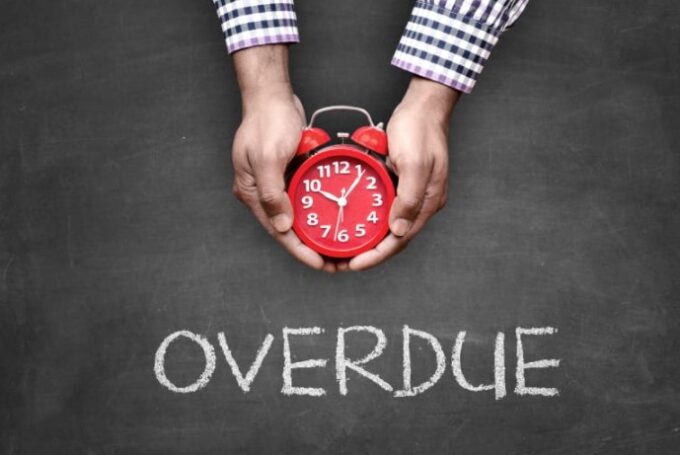All of us have ever been faced with a situation where we need to pay interest on a loan or pay off debt and our wages are withheld. No one is immune from this. But in a situation where you have debt obligations hanging over you, it is important to understand what this can lead to.
In this article, I’ll cover such a topic: What happens if you don’t pay your credit card debt? As an example, I will use some information from Myfin. Sit back and we’ll get started.
What happens if you don’t pay your credit

Let’s say a borrower gets a late paycheck or another force majeure and can’t make a monthly payment. Depending on the terms of the contract, penalties will begin to accrue within 1-5 days of default.
In addition, the debtor will be charged a penalty for the delay. Then, a bank officer will contact the client to remind him/her about the delinquency and to find out what is going on. The information will be forwarded to the credit bureau.
The impact on the credit history depends on the length of delinquency (the most serious being delays of more than 90 days). The further course of events depends only on the borrower.
What happens if you ignore and do not answer the bank’s calls?
Oddly enough, one of the most frequent strategies among debtors is ignoring. People think that if they don’t answer and don’t respond, the creditor will forget about the debt.
In reality, the situation is quite different

First option. If the borrower does not respond in any way and the situation is not resolved, with a high probability the debt will be transferred to a debt collection agency.
People think that if they don’t answer and don’t respond, the creditor will forget about the debt.
The second option. The bank or debt collectors can go to court. In this case, the debtor can have his/her finances withdrawn and, possibly, property to pay the debt; The third option. If it is a mortgage or other pledged loan, the pledged property is sold at auction to cover the debt.
Can the apartment be taken away?
Theoretically, the law is on the side of the debtor. Formally under the law, a person does not have the right to take away the only housing, and some borrowers consider this a salvation.
In practice. No one is preventing the lender from selling the mortgaged property and giving the borrower another place to live. As you can imagine, this will be simply some cheap housing with a minimum number of square meters somewhere in the basement.
What debt collectors can do

To call. The maximum limit is 1 time per day, 2 times per week, 8 times per month. Allowed period of call – from 08:00 to 22:00 on weekdays and from 9:00 to 20:00 on weekends.
Meet in person. The maximum limit is 1 time per week. Send voice and text messages. Maximum limit – 2 times a day, 4 times a week, 16 times a month. To communicate about debts with third parties. Only if it is specified in the loan agreement.
Unfortunately, this point many borrowers do not notice – and this is another reason to read the text of the document carefully before signing. The loan agreement may also include other terms, but the debtor has the right to refuse to interact with the collector.
Remember
In all interactions, the person who contacts you must give his or her name and the name of the creditor whose representative he or she is.
What they can’t do

Collectors are not allowed to exert psychological pressure. (Insult, humiliate, threaten to cause harm to health, life, or property.) Use the physical force, property damage, including damaging property in any way. Disclose information about debts to third persons.
Even if the contract stipulates the right to contact relatives or other people, the collector only has the right to try to find the debtor. He or she has no right to inform the debtor of the amount owed.
To deceive and give false information For example: talking about his affiliation with the state authorities, overstating the amount owed, etc. In all of these situations, you have the right not to communicate with the collector if it makes you uncomfortable.
You need to submit a declaration that you refuse to communicate with the collection company. In this case, your debt will be immediately sent to the court to clarify further circumstances.
How to improve your credit history if you have overdue credit?

Your credit history cannot be cleared or erased. Your reputation as a borrower is built from the moment you get your first loan. So you can’t undo your credit history. But you can try to change yourself and your attitude to your obligations to financial institutions, so that the history of new loans will work “for you” rather than “against” you.
To establish yourself as a bona fide borrower, the first thing to do is to close all your debts to the banks on overdue payments. Banks are unlikely to want to give a loan to a person with outstanding debts. Banks are unlikely to want to give a loan to a person with outstanding debts.
If you need to take out new loans, you should keep to the terms of the contract with the bank. Always assess your capacity for upcoming payments. If you feel that you cannot cope – refuse, wait for a more appropriate time.
Be aware of your rights too and be vigilant. As a person with a credit history, you have the right to dispute all or part of the information in your credit history. Of course, if you have supporting documents. When a borrower discovers an incorrect entry in his credit history, according to the law he can dispute it.
To do this, it is necessary to contact the creditor who made such an entry. After receiving a citizen’s application to contest any entry in the credit history, the bureau of credit histories must conduct an additional check of this information, requesting it from the creditor.
The creditor, in turn, is obliged within 14 days to submit to the bureau either information confirming the accuracy of the previously transmitted information or correct his credit history in the disputed part. Having sent in this case to the Bureau of credit histories the corresponding authentic information.
Conclusion
Having read the information I have offered you can conclude the risks of overdue loan payments. I recommend not to take out a loan if you feel that you cannot afford to do so. If you need to take out new loans, you should keep to the terms of the contract with the bank. Always assess your capacity for upcoming payouts. If you feel that you cannot cope – refuse, wait for a more appropriate time.









